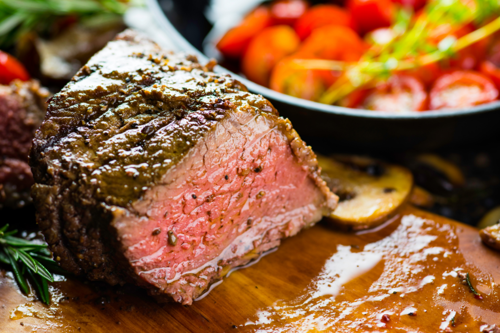As a meat lover, have you ever experienced the disappointment of biting into a dry, tough steak? Or maybe you’ve been frustrated by chicken that seems to lose its flavor and succulence halfway through your meal. The truth is, cooking the perfect meat dish is not an easy feat, but there’s a simple technique that can take your meat cooking game to the next level: resting your meat.
Resting your meat involves taking the cooked meat off of a hot cooking surface and letting it sit for a period before cutting into it. Although this may seem like a small detail, resting meat can significantly impact the final product. So why is resting your meat so crucial?
Preserving Juiciness
When meat is cooked, moisture is forced towards the center of the meat. By letting your meat rest for a few minutes after cooking, that moisture is redistributed throughout the meat, giving you a juicy and tender outcome. Without rest time, you risk losing the moisture and tenderness of your meat, resulting in a less enjoyable final product. Think of resting as allowing your meat to soak in its own flavors and juices.
Preventing Dryness
Dryness is a common issue many meat lovers face when cooking meat dishes. However, by resting your meat for an appropriate amount of time, you can help prevent this problem. When you cook meat, the heat causes the muscle fibers to tighten, which can result in meat that is tough and chewy. Rest time allows these fibers to relax, preventing dryness and toughness, leading to a more enjoyable eating experience.
Flavor Amplification
Just as the juices redistribute during rest time, so do the flavors. Resting your meat allows the flavors and aromas to intensify, giving the meat ample time to absorb all of the deliciousness. This amplification of flavor can significantly impact the quality of your dish, taking it from good to amazing.
How Long Should You Rest Your Meat?
The amount of time you should rest your meat depends on a few factors such as the type of meat, size, and thickness. In general, it’s recommended that you rest your meat for at least 5-10 minutes before cutting into it. Steaks, for example, need about 5 minutes of rest time, while larger cuts like roasts may need up to 20 minutes. Chicken, on the other hand, requires about 5-10 minutes of rest time, depending on the size of the cut.
Conclusion

Resting your meat might seem like an unnecessary step, but its benefits are undeniable. By simply taking a few extra minutes to allow your meat to rest after cooking, you can achieve a juicy and flavorful result that will impress even the toughest food critics. The key to perfecting your meat dishes is not just in how you cook your meat but in how you handle it after its cooked. So the next time you’re cooking up a meat dish, remember to give your beloved meat the rest it deserves.








